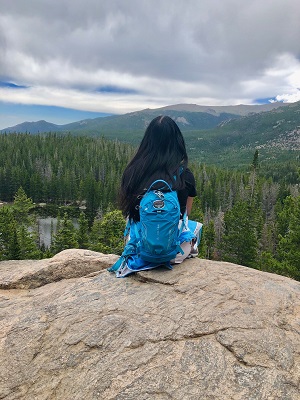Hello and welcome to Medical Mondays! (It was kinda about time that I revived this series…?) I’m going to be discussing what you need to know about COVID 19 today!
What To Know About COVID 19

What we know and do about it changes every day (often multiple times a day)
What is it?
COVID19 is a virus and stands for COronaVIrusDisease2019. Coronaviruses themselves have been around for ages, but this is a new mutation that was first identified in China in 12/2019 and has been spreading all over the world.
What are the symptoms?
The classic “trifecta” is:
- Fever (temp >100.4)
- Cough
- Shortness of breath
The virus can damage your lung cells and your body’s inflammatory cells can cause further tissue damage. Most (~80%) will recover, but high-risk patients (e.g. elderly, immunocompromised + those with chronic health conditions) are more likely to experience more severe symptoms.
Other symptoms include headaches, body aches, runny nose, sore throat, or even GI symptoms like nausea, vomiting and diarrhea. Some people have no symptoms at all (asymptomatic).
How does it spread?
Respiratory droplets (e.g. by coughing/sneezing)! Meaning that you can get infected if you come into contact with someone who coughed/sneezed while you were in range, or if they touched a surface and you touched it afterward.
Asymptomatic carriers can still shed the virus, so even if you’re young and healthy, you can still affect more high-risk patients (eg elderly, immunocompromised, chronic medical conditions). Most COVID cases in the US haven’t been tested, so the “death rate” of 3.5% is likely to be a lot lower. The government declaration of “we have a million test kits” is not consistent with reality. For reference, the lab that my practice uses has labs all over the country, but they can only feasibly run 2000 tests a day. In the entire country. Testing is a very limited resource right now and we can’t test everyone.
P.S. Your pets are safe. Cats and dogs can’t catch or transmit COVID19!

Is there a test for it?
Yes. Technically. However, we definitely do not have enough and while in ideal situations, we’d be able to test everyone, that is not feasible at this time. As of right now for where I work, we have the capability to test 400 people per day for the entire northern California region (which spans 4 million patients). As such, the test is being prioritized to severe cases and those at high risk.
What’s the treatment?
Since it’s a virus, antibiotics are not effective for this. They’re working on developing a vaccine currently and I believe human trials are under way, but it is going to take some time before it’s actually readily available to everyone.

What if I have symptoms? What can I take?
The illness lasts up to 14 days, so we recommend voluntary self-isolation for 2 weeks. People with worse symptoms or complications may be ill for longer. The treatment at this time is supportive care.
There are some early studies showing that NSAIDs (non-steroidal anti-inflammatory medications) like ibuprofen (Motrin/Advil) and naproxen (Aleve) can make you sicker with this particular virus, so try to stick to acetaminophen (tylenol) if you have any fever, headache, body ache, or sore throat.
I’m young and healthy. I’m not worried about getting infected.
That’s great, but this isn’t about you. This is to help protect your community as well, because there are a lot of people who are at a higher risk for complications and possibly death from this virus. Social distancing is extremely important right now to prevent our emergency rooms and hospitals from being inundated with patients. Other medical emergencies (e.g. heart attacks, strokes, traumas) are still happening throughout this pandemic, and we have limited hospital beds, ventilators, and health care workers. We need to do what we can to protect our community and so we can provide the optimal amount of care to each of our patients.
If we do this correctly, it’ll seem like we completely overreacted to this pandemic. That’s a good thing, because it’ll mean that we’ll have slowed the infection rate/transmission (aka #flattenthecurve) and that what we did made a difference and helped to keep people in our community safe and healthy.

(This isn’t a dig at Ortho because I very much appreciate their existence, but in general, you kinda want the people treating you to be super familiar with what they’re doing!)
What can I do?
- Wash your hands with water and soap for at least 30-60sec. Alcohol-based hand sanitizers work too. (Please avoid using vodka.)
- Avoid touching your face. Handshakes aren’t all that necessary right now either. Air shakes/fist bumps work just as well.
- If you need to cough/sneeze, cover your mouth (but not with your hands, because you use those to touch everything!).
- Avoid large gatherings and public transportation.
- Don’t be racist, and speak out against those who are acting unreasonably.
- If there’s a way you can support your local small businesses safely, please do! A lot of them are really hurting right now (especially Asian-owned establishments).
- Do not hoard supplies (and please don’t steal them from your health care providers’ offices). For people to stay safe, EVERYONE needs them. There’s been a huge shortage of masks everywhere, especially N95s, which are needed to protect health care workers while treating those who may be infected.
- Remember that the ER is for emergencies. If you’re having a medical emergency (e.g. severe shortness of breath/weakness/labored breathing, altered levels of consciousness), please come to the ER. If not, please stay home and call your doctor!
- Avoid going to any health care facility if you are having mild-moderate symptoms. You are putting yourself and others at higher risk of getting infected (there are still a ton of other viruses going around including covid-19).
- If you aren’t feeling well, stay home and call your doctor—they likely will have a triage system to see if you need to be tested. (Please be patient. Call centers are completely swamped right now. It took 71 minutes for me to reach the advice nurse the other night. They are doing the best they can.)
![I came up with this design ages ago for our class t-shirt contest! :]](https://i0.wp.com/www.fairyburger.com/wp-content/uploads/2014/12/medicalmondays.jpg?w=453)
- f
- If you’re having trouble dealing with social distancing and/or are going stir-crazy at home, check out my post on tips to deal!































2 comments
Thank you for the info Farrah! I am nervous as to how things will be in July when I begin PGY1! Hope you’re doing well. Any interesting stories to share?
I’m so happy for you! <3 No super interesting stories to share yet, although if I do end up getting drafted (I volunteered, so probably the wrong word choice, haha) back to the hospital, I may have some to share then. I hope you and your family are staying safe and healthy! It's definitely understandable to be nervous about starting (I was nervous even without a pandemic going on), but I hope things will start to improve soon!